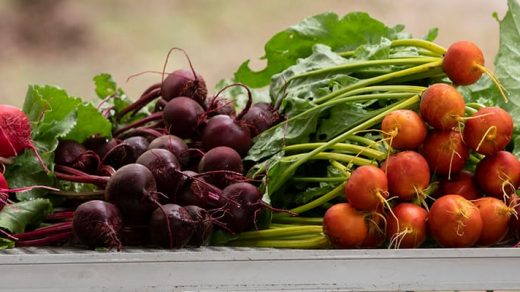I often mention adding compost to garden beds to increase the organic matter. I have recently been reminded about the importance of doing this continually and also checking lawn areas. Our soils are naturally very lean, that is they contain little organic matter. When organic matter is added to the soil, it gets used up relatively quickly due to our environment and long growing season.
Two situations crept up on me that provided the reminder. First, I noticed several areas where my lawn was thinning due to the growth of two cedar elm trees. Their sharing of water and nutrients with grass has resulted in a depletion of organic matter in the soil. Unlike flower beds, which I spread compost on, the grass has never been top dressed with organic matter.
Second, while planting this spring I have found several other areas also lacking in organic matter. These are areas next to shrubs and/or trees that have sent their feeder roots into the friendlier garden area to steal nutrients. Over time although I continually add compost to my beds, the roots had become more pervasive and the organic matter was depleted faster than it would be if only annuals or perennials were tapping the bed’s nutrients.
Planting time is a good time to add organic matter. Many gardeners have their favorite amendments that they use when planting. Sometimes these are commercial additives specially formulated to help give new plants a boost and sometimes it is homemade compost. Either way, the addition of organic matter when planting is an excellent practice if it is not overdone. Plants’ roots must grow into the surrounding soil, so too much organic matter added to the planting hole may encourage roots to stay there by growing in circles rather than into the native soil. This can kill a plant.
If you routinely amend soil throughout the year or in fall or winter, adding a small amount of organic material only to the planting hole when you plant will minimally disturb the soil and the soil food web. This is a good thing as it results in healthier soil throughout the bed which translates into healthier plants growing in the soil. But certain areas and/or plants will use up the nutrients and organic matter more quickly than others and will need special attention as a result, including lawn areas.
Organic matter can be added any time of the year. If you have enough it can also serve as mulch. I have three large compost piles that are currently filled with plant materials composting for use. Even these are not enough for my needs, so I sometimes supplement it with purchased materials.
In addition to the many good materials available at nurseries and garden centers there are other products like composted cow manure and worm castings that are also available in bulk. All are great garden investments and help maximize the money and labor you have invested in your landscape.




